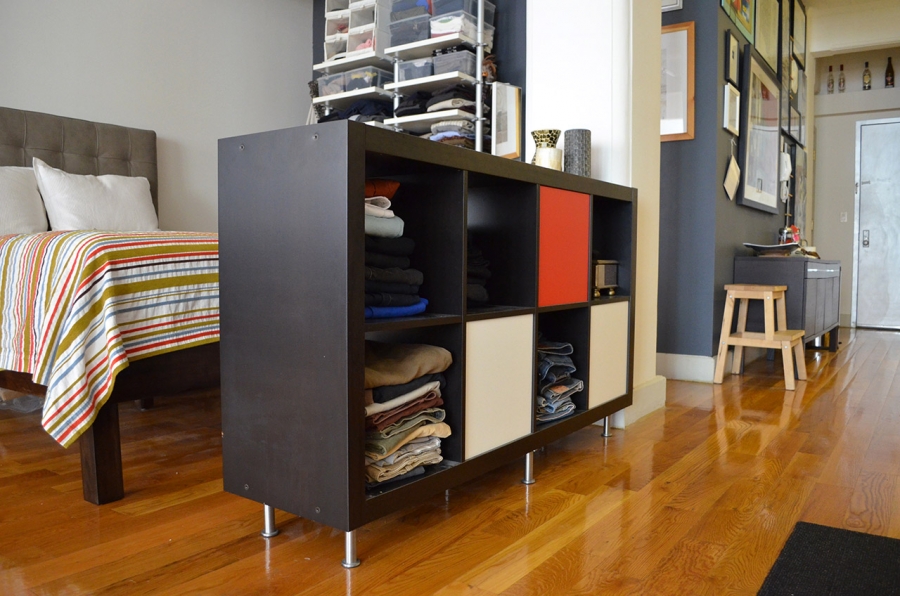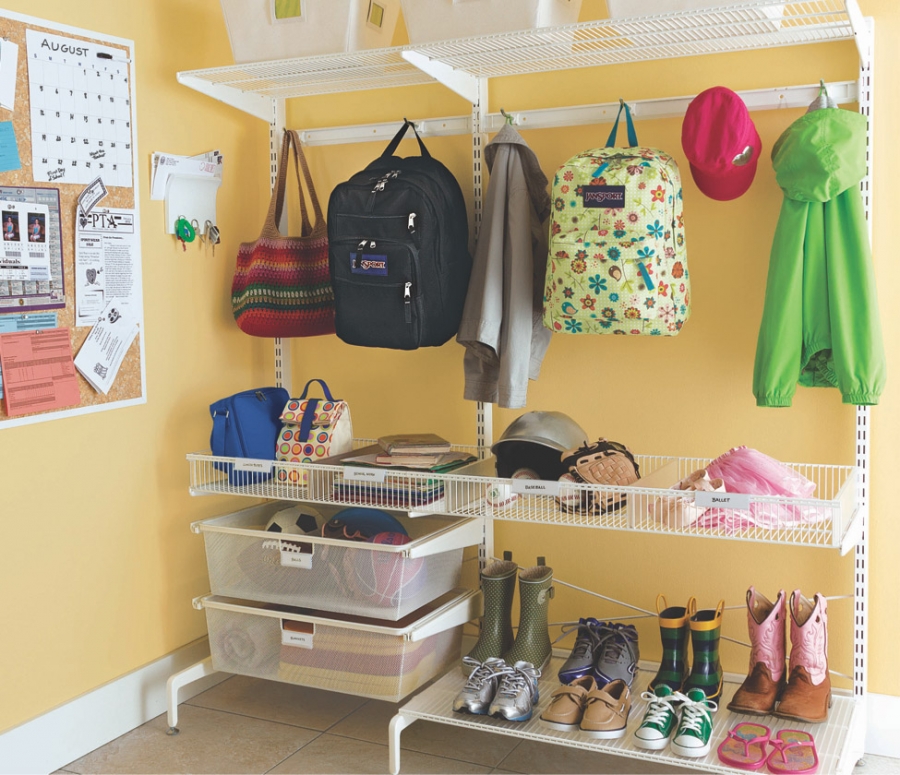Tips for Winter Apartment and Condo Living
Video
Stay warm, healthy, and happy indoors throughout the winter season.
A few weeks ago, I was offered a pair of coveted tickets to an NFL divisional playoff game. I was beyond excited until I realized that the forecasted temperature for kickoff was a mere 13 degrees. As much as I really wanted to be in that stadium, I knew I would be miserable if I had to spend the majority of the game underneath the restroom hand dryers attempting to defrost my fingers and toes. Needless to say, I chose to watch the game with my neighbors in front of a fireplace in the toasty indoors.
Although I was relegated to an indoor game day experience due to below-freezing conditions, I actually liked the fact that it was so cold outside. As I began to contemplate the reasons I love winter, I realized that for many of us itís the intangibles that make the season so special: winter drives us indoors, forces us to slow down, causes us to spend more time with family and friends, and reinforces the comforts of home.
Yet, when it comes to the comforts of home, winter can also bring several challenges: maintaining a comfortable indoor temperature, paying next monthís heating bill, coping with the frustration of being cooped up indoors, finding the motivation to exercise, and staying well despite the increased likelihood of getting sick.
As a condo dweller, Iíve learned that these wintertime challenges can often become even more pronounced for residents of multi-family buildings. Those of us who live in condos and apartments sometimes have little control over indoor temperature regulation, typically have less square footage for indoor activities, and may have a higher risk of becoming ill due to increased proximity and exposure to others within the building who may already be sick.
Fellow condo and apartment dwellers, here are several ways you can stay warm, healthy, and happy throughout the winter season.
Staying Warm
Regulating indoor temperature can be a challenge, especially if your building is poorly constructed, lacks energy-efficient windows and doors, or doesnít feature programmable thermostats within each individual unit.
If you are fortunate enough to have a programmable thermostat in your unit, energy.gov advises that the temperature be kept at 68 degrees F to efficiently heat your unit while conserving energy. Also, according to energy.gov, by turning your thermostat down 10Ė15 degrees for 8 hours while you are asleep, you can save 5%Ė15% a year on your heating bill. You can always count on the timeless standbys Ė a down comforter, warm sleepwear, and fuzzy socks Ė to help keep you comfortable throughout the night.
If you live in an apartment with radiator units, you might need these timeless standbys even if you donít turn down your heat at night Ė or you might have the opposite problem: too much heat. The challenge with steam heating systems in older buildings is that they donít always heat the entire building consistently, so while you may be wrapped up in flannel, your neighbor may be sweating indoors in summer attire. If your radiator unit provides too much heat, try to regulate indoor temperature by opening the blinds, using a humidifier to keep the air moist, and circulating the air with a small fan. As tempted as you may be, try to avoid opening windows.
Regardless of which extreme you are battling, too much heat or not enough, be sure to notify your building management of your concerns. In either case, itís best not to turn off your radiator units. Steam can become trapped within the pipes, which not only can lead to banging noises but also can potentially cause long-term damage to the system. Instead, encourage your building manager to install a temperature regulation device on each radiator within your unit.
If your heating system appears to be working properly, yet you are experiencing cooler temperatures or drafts within certain areas of your unit, check your windows and doors to ensure a proper seal. If your building management team is unable to quickly replace weather stripping or install inexpensive draft-protection insulation, placing towels at the bottom of the doors and windows can serve as a temporary solution for minimizing energy waste and preventing valuable heat from escaping.
Also, regularly check the inside of your exterior-facing doors and windows for frost; if the temperature outside is drastically different from the temperature within your unit, ice buildup can occur. Lining the exterior doors and window sills with towels can help prevent a mess or damage to your sills and floors when the ice begins to melt. (Yes, I speak from personal experience on this one.)
Finally and most importantly, to keep your apartment or condo safe and warm during the winter, the Centers for Disease Control and Preventionís (CDC) website recommends having a safe alternate heating source in the event of power outages. In addition, the CDC recommends having your heating unit serviced professionally every year to make sure that it is clean, working properly, and ventilated to the outside. If you arenít sure if maintenance measures have been implemented, contact your building manager.
Staying Healthy
Living in a multi-family building presents a number of wintertime wellness challenges. When you spend more time than usual cooped up with indoors with family and roommates and when you live in close proximity to others, you increase your risk of becoming ill.
It goes without saying that the best way to avoid ďcatching a coldĒ this winter is to wash your hands often and use hand sanitizer after touching shared surfaces, such as elevator buttons, keypads, stair railings, carts, and door knobs. You should also regularly disinfect surfaces within your home with sprays and cleaners that have known disinfectant properties. During the winter months, low humidity can also potentially increase the rate of viral transmissions, so you may want to invest in a humidifier depending on the nature of your climate.
Even if you take precautions to avoid becoming ill, itís always a good idea to have a ready supply of cold remedies within your home, but be sure to keep them out of the reach of children. For healthy winter living, make sure your medicine cabinet is stocked with herbal teas, cough medicine, a decongestant, a mild pain reliever, and plenty of tissues, just in case.
Finally, if the weather outside is gloomy for an extended period of time, and you donít receive enough sun exposure, you could experience a vitamin D deficiency. Consider taking a supplement throughout the winter months to avoid suffering the symptoms.
Staying Happy
Being cooped up indoors can lead to additional stress, frustration, and even boredom. To mitigate these potential outcomes, have plenty of board games and other indoor activities on hand to keep the kids busy when itís too cold to play outside. For your personal winter day escapes, enjoy experimenting with a new recipe, catching up on a season of your favorite TV show, or reading a good book. Sometimes itís all about perspective: rather than bemoaning the time spent indoors, try to appreciate the inherently slower pace of winter and the advantages of being at home. After all, spring will be here before you know it.
In order to stay both healthy and happy throughout the winter months, itís also really important to make exercise a priority. You may have to employ some creative tactics, but exercising during the winter will not only keep you physically fit, it can also help ward off the winter blues. If the weather is too cold for outdoor activities and your complex doesnít offer workout facilities, join a nearby gym, invest in equipment that can be used at home, or find creative ways to avoid becoming sedentary. If square footage presents a challenge, thereís nothing quite as invigorating as an interior stairwell workout. Just be sure to remain respectful of your neighbors.
Speaking of your neighbors, as an apartment or condo dweller, you probably have some really wonderful people right outside your door who are also spending more time at home. Winter is the perfect time to host a get-together, make new friends, and celebrate the benefits of the season.

Lisa Taylor Minor
Lisa Taylor is a freelance writer and marketing consultant. She has more than 16 years of experience as a communications professional and has worked with a variety of companies in the home products and building materials industry. Originally from Memphis, TN, Lisa earned a BA in Journalism from the University of Memphis in 1995 and a MA in Journalism from the University of Memphis in 1997. She spent the first 11 years of her career working in account service for Memphis advertising agencies Thompson & Company, Oden Marketing & Design, and Carpenter/Sullivan. Lisa then spent five years in Nashville, TN, with The Buntin Group, an Adweek Top 100 U.S. advertising agency, and Louisiana-Pacific Corporation, a leading manufacturer of building materials. Lisa currently lives in Denver, CO, and is Principal/Owner of Wazee Marketing.
Website: www.wazeemarketing.com


